 Who and how to call to Islam?
Who and how to call to Islam?

Islam is a universal way of life and therefore addresses the entire community. This flows firstly from the fact that Islam is the religion prescribed by Allaah, the Almighty, to the whole of humanity. Secondly, Islam, being a complete code of life, providing clear-cut criteria for man’s activity in all domains of life, social, economical, political and ideological alike, possesses all-embracing characteristics. Hence it naturally captures the interest of the highly cultured and the less educated, the wealthy and the poor, the specialist and the layman, the intellectual and the ordinary.
Addressing His Messenger, Muhammad sallallaahu alayhi wa sallam, Allaah, the Most Exalted, Says (what means):”And We have not sent you except as a giver of glad tidings and a warner to all humanity.” [Quran 34:28] and “And verily We have sent you as a mercy to all humanity.” [Quran 21:107]
An efficient and effective invitation of the general public and the relatively more gifted minds among the people in particular call for several important considerations which, in fact, require rigorous study.
First and foremost, the Muslim who wishes to carry the burden of his sublime mission, so that all those concerned may be properly enlightened through him about Islam, should have sufficient knowledge and correct understanding of the Quran and the Sunnah (Prophet’s tradition, sayings, practice, etc). Ideally, he should be aware of the relevant past experiences throughout the history of the Muslim Ummah (community). Further, he should possess a sufficient insight into human psychology. He also ought to be intelligent enough to adapt himself to various circumstances and identify and define the problems with which he is confronted.
More so today than in the past, the presentation of the message of Islam requires efficient planning, intelligent organization and thoughtful co-ordination of activities for the work to be lasting and productive. In order for this gigantic task to be fruitful, it should be backed up by state or state-like powerful organizations.
It must be pointed-out that Christian Missions in Africa and Asia are eliciting enormous support form the governments of their respective countries as well as private institutions. In addition to this, the tremendously wealthy churches implement their plans through their own missionary organizations.
The continuous flow of generous funds from Europe and America have enabled these Christian Missionaries to establish thousands of primary, secondary and high schools, fully equipped modern hospitals and cultural centers everywhere they could, even in major Muslim countries such as Egypt, Indonesia, Pakistan and Turkey.
The foregoing discussion should at least serve as a basis for comparison between what people on the other side of the fence have been doing and what we Muslims ought to do, but are a long way off doing it.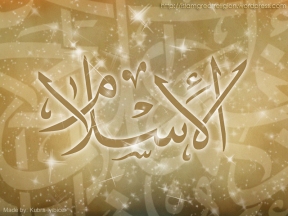
The scope of Islamic work involved in the field and the complexities of modern life imposed upon our societies have rendered individual efforts ineffective. The ideal of furthering the Islamic cause cannot possibly be realized by the efforts of part-time workers and untrained individuals with meager resources.
The fact that the work undertaken by some groups of Muslims has not scored success by any measure, ought to be attributed to an appalling lack of education, training and understanding of current problems as well as inadequate means and methods to approach the parties concerned, while the sincerity and devotion of the individuals involved in such groups deserves the praise.
The question ‘how and where to work’ must be answered realistically. There are two main areas where Islamic work needs to be carried out. Firstly, countries with predominantly Muslim populations, having long-established Islamic tradition. Secondly, countries having little or no Muslim populations, but possessing a high potential for ‘Islamization’.
It is a sad fact that many parts of the Muslim World today feel themselves deprived of Islamic culture and education by western colonization of the past or by damaging influences of alien cultures and ideologies, still persisting in Muslim lands.
Therefore, Muslim masses suffering from these setbacks must be “re-educated” in Islam and “regained” to the Muslim Ummah. Clearly, the process of “re-Islamization” of the Muslim peoples is a huge task. It entails facing considerable difficulties, moral and material.
In the primary stages, the great volume of “Da’wah” (calling to Islam) work must be concentrated in such Muslim countries, where the response to the Islamic Call and the chances of success are tremendously high. In many such countries, it is quite possible to organize all kinds of educational and social services in co-operation with the local residents, societies and institutions.
In places where “Da’wah” work is taken up for the first time, the nature of activities may differ substantially from those conducted in predominantly Muslim countries. It is necessary for those who would be directly involved in the “Da’wah” work to know the language, the habits, the beliefs, the nature, the needs and hobbies of the native people whom they want to address.
Informing and inviting others to Islam using argumentative methods, even if they are full of impressive evidences, prevents people from accepting the “Truth”. So the listeners should be spoken to politely, because the aim is not to defeat them in disputation. The real importance lies in the fact that you have won their hearts by displaying good attitude.
It is not enough to express and convey the methodology of Islam in word but it is essential to show one’s good-will and compassion by good deeds. It is narrated that not very long after the Battle of the Trench (Al-Kandaq), when the ‘Quraysh’ led the biggest military campaign against the Prophet sallallaahu alayhi wa sallam, in Madeenah, the news reached the Prophet sallallaahu alayhi wa sallam that the people of Makkah were suffering from acute famine.
The state of belligerency between the Muslims and the ‘Quraysh’ was still at its peak. Notwithstanding the bitter animosity of the ‘Quraysh’ against the Muslims, the Prophet sallallaahu alayhi wa sallam ordered a train of camels loaded with wheat to be delivered to the hunger-stricken ‘Quraysh’. This uniquely noble gesture of the Prophet sallallaahu alayhi wa sallam must have touched sensitive chords in the hearts of the Makkans in their moments of agony and despair.
Quite often, deeds of this nature express more forcefully what words fail to convey. It is a strange irony that today several western countries are doing a lot of social work and are providing food, shelter, medical care and education to millions of Africans and Asians through dozen of international missionary organizations such as “Oxfam”, in England, and “Brot fiir die Welt”, in Germany, not to mention the International Red Cross Society and the like.
In the face of all that has been mentioned, it should be considered no less than a breach of duty towards Allaah, the Almighty, not to ease the suffering of others.
More Than Eighty Ways To Make Daw’ah!
All praise is due to Allaah who expressed the highest praise for the “caller” to his religion saying:
“And who is better in speech than one who calls to Allaah and works righteousness and says: ‘Surely I am of the Muslims.’ ” (41: 33).
And may Allaah’s peace and blessings be on Prophet Muhammad, the role model, who said:
“Whoever calls to guidance will have a reward similar to that of one who follows it.”
Muslims know that Allaah is the one who honored them with the religion of Islaam and made them responsible for fulfilling the trust of spreading it. Furthermore, they know that they will be asked about this responsibility, as Allaah says:
“This is a reminder to you and your people and you will be asked (questioned).” (43: 44) They also know that if they fulfill this trust and become a reason for the guidance of others to Almighty Allaah, they will receive a reward greater than they can possibly imagine, as the Almighty said: “Say: Let them rejoice in Allaah’s grace and mercy, for it is better than what they accumulate.” (10: 58) And the Prophet (pbuh) said, “For Allaah to guide someone by your hand is better for you than anything this world contains.”
It is from Allaah’s grace upon us in these times that there are many ways to give da‘wah (calling to Islaam) and sufficient opportunities for everyone to participate and benefit from its great rewards. One who calls to Islaam is obliged to choose the most suitable way for those whom he or she calls. Furthermore, the caller has to vary these methods according to the particular circumstances he finds himself in, as Prophet Noah and the prophets before him did.
The responsibility of the caller is to be aware of the various forms of invitation in order to facilitate his work. The caller should also direct his invitation to everyone, including his immediate family, relatives, servants, guests, neighbors, colleagues and his friends. He should also be aware of the various locations where the invitation can be given like mosques, prayer halls, schools, hospitals, prisons, parks, beaches and recreational areas, Hajj tents, hotels, residences, airports, bus stations, banquet halls, shopping centers, market places, barbershops, public buses, offices, lunch rooms, cafeterias, and restaurants. Places where new comers to the country frequent such as passport offices, duty free shopping areas, immigration offices, post offices, traffic police offices, police stations, tourist bureau, information counters in the various governmental departments and embassies.
Cooperation in da‘wah is also important as there are many others striving to give the invitation whose skills and experience may benefit you and yours may benefit them. Learning from their experiences will help you to be more creative and upgrade your knowledge and da‘wah skills. Consequently, the caller should eagerly encourage others to collaborate with others in da‘wah and to give their utmost in serving the religion, whether they are from his family or not. Futhermore, he or she should utilize a variety of da‘wah materials and advertisements to recruit others to this noble cause by jointly printing books, pamphlets, and brochures, as well as copying tapes, CDs, video tapes, etc. and distributing them as widely as possible within his or her circle of friends as well as outside of the circle.
Since people are often at a loss as to how they should go about giving da‘wah, and use their ignorance as an excuse not to do anything, the following list of more than eighty suggestions have been compiled from among the many possible ways to give da‘wah in order to make the way easier:
At Home:
1. Household library. Prepare a collection of books, magazines and tapes according to what is suitable for the various age groups (with consideration of what are suitable for all the members of the family).
2. Posters. Make a bulletin board for the home on which announcements for Islaamic lectures and events can be posted in order to remind the family of important events and lectures.
3. Family lessons. Read from a book, listen to a tape or memorize a portion from the Qur’aan and hadeeth together as a group.
4. Family Competitions. Engage family members in Islaamic competitions and maybe the prize is writing the winner’s name on the honor roll in the house).
5. Family Magazine. Create a family magazine by having family members participate writing essays or in cutting articles and pictures related to Islaam from the magazines and newspapers which you bring home.
6. Participation in Islaamic Social Work. Have your brother or son accompany you to the prayers, lectures or to visit a sick person or a scholar or the offices of Da‘wah.
7. Righteous Acts in Public. Do some righteous acts in front of the family, such as prayer, reading Qur’aan and giving charity, as an example for them to learn from.
At the Mosque:
8. Participation in the Wall Magazine. In most mosques there are bulletin boards at the back with announcements and Islaamic posters. Contribute articles to the board and purchase beneficial and informative posters for it.
9. Development of the Mosque’s Facilities and Programs. Participate in developing the mosque’s Da‘wah facilities and activities such as its library, Qur’aan memorization classes and its contribution’s box.
10. Providing Books and Tapes. Collect good books, booklets, pamphlets and tapes from Islaamic charitable organizations and put them in various locations in the mosque. For example, it is possible to place the literature in the Qur’aan shelves and in particular the Qur’aanic commentaries and their translations in different languages.
11. Advertisement for Mosque’s Programs. Announce the topics and timings for new lectures and classes in the mosque and post advertisements for them on the bulletin boards and on the doors of the mosque.
12. Lectures. Invite a good lecturers know to you to give lectures at the mosque or contact organizations like the Awqaaf or other Da‘wah organizations to provide lecturers for your local mosque on a regular basis.
13. Translation of Friday Khutbah. Arrange with the Awqaaf for the translation of the Friday sermon into the languages of the majority of those who attend Jumu‘ah in your local mosque.
14. Mosque Committee. Participation in the mosque’s committee which organizes the mosque’s Da‘wah programs and its and social activities.
At School:
15. Morning Assembly. Help to prepare da‘wah oriented material for the morning assembly and the school’s morning broadcast.
16. Bulletin Boards. Prepare attractive posters advertising internal extra curricular activities as well as external Islaamic lectures and classes for the various bulletin boards around the school.
17. Drama Activities. Participate in the drama activity in the school by developing Islaamic plays and themes.
18. Lectures. Arrange for the visits of various speakers and callers to the school. Focus on open forums in which students are able to ask the questions which are most important to them, thereby making Islaam seem more relevant.
19. Competitions. Organize Islaamic and academic educational competitions between the students and schools and distribute Islaamic prizes. Use such occasions as a means to talk about the importance and responsibility of da‘wah.
20. Facilitating Student Input. Collect students’ suggestions and complaints and present them to the school authorities. Give full support to student opinions on important issues, especially those related to Islaam.
21. Islaamic Library. Help the Islamic studies department to develop a strong and varied section for Islaam in the school’s general library. Focus on Islaamic novels and stories of the Companions and others.
22. Exhibitions and Expositions. Participate in book and tape exhibitions or anti-drug epositions, etc. which are officially organized by the school.
23. Islaamic Week. Request that the school dedicate a week annually to Islaamic exhibitions, displays, posters, artifacts, videos, books and tapes.
24. Summer Holidays. Introduce Islaamic content in the summer vacation activities of the school.
At the Work Place:
25. Da‘wah Posters. Put up Da‘wah posters and announcements for Islaamic events on the office’s bulletin boards.
26. Your Desk. Keep Da‘wah material on your desk at all times, among your books, in a rack as well as on your own bulletin board.
27. Tape Distribution. Distribute tapes of recent lectures relevant to co-workers. Especially those with catchy titles that address materialism.
28. Invitations. Invite interested co-workers to lectures and other Islamic events, as well as to visit Islaamic da‘wah offices.
29. Congregational Prayer. Establish congregational prayer in the office or invite co-workers to accompany you to the nearby mosque.
30. Islaamic Socialization. Organize social gatherings and invite Islamic propagators to join you as informal guests.
31. Open Discussions. Encourage Islamic discussions during lunch and tea breaks.
32. Islaamic Projects. Gather other active Muslims in the office to initiate Islamic charitable projects on your job.
33. The Islaamic Example. Do your job to the best of your ability at all times as a good Islamic example to your co-workers.
General Means of Da‘wah:
34. Da‘wah Posters. Create or purchase a variety of beautiful eye-catching posters whose scenes match though-provoking Islaamic texts or suitable Da‘wah situations and put them in appropriate locations around the city.
35. Muslim Greeting Cards. Print and distribute congratulatory cards and Eed cards, as well as cards commemorating other occasions of Islaamic significance which contain beneficial da‘wah messages and slogans.
36. Da‘wah Album. Collect awe-inspiring pictures and powerful Da‘wah slogans in da‘wah albums which may be kept for visitors and guests or given as a gift.
37. Marriage Invitation Cards. Turn the cover of a useful pamphlet into a marriage invitation card as a means of reaching all who attend. For example, where people are accustomed to a number of un-Islaamic practices during marriage, a well-known booklet on the etiquette of marriage could become the marriage invitation card.
38. Revision or Typing. Request the person you wish to invite to Islaam to revise or type out a da‘wah article as a means of indirectly exposing them to the Islaamic information you wish to get across to them.
39. Da‘wah Mobile. Send da‘wah messages by mobile to the general public or by email to mass mailing lists as reminders for religious occasions or lectures, etc.
40. The Internet. Utilize the Internet for da‘wah conversations or participate in any of the many the chat rooms in which Islaam is being maligned on the net.
41. The Media. Participate in spreading the Da‘wah by developing and presenting radio and TV programs or writing Islaamic articles in local newspapers. These programs should be widely advertised through the many means of communication mentioned.
42. Stickers. Arrange for the posting of stickers containing beneficial Islaamic reminders in appropriate locations like the prayer for traveling and riding vehicles in buses, airplanes. Distribute stickers containing the supplications for various occasions like leaving and entering the home, the toilet, etc., for people to put around the home. Negotiate with hotels and other such institutions to post stickers with beneficial advice like the sticker showing the direction of the Qiblah in hotel rooms, etc, to remind residents of prayer and help them to do so properly.
43. Schedules. Post schedules of the prayer timings and Ramadaan fasting timings, on bulletin boards in suitable locations around the city as prayer reminders and guides for those fasting.
44. Diaries and Agendas. Publish or print diaries, agendas and educational schedules containing Da‘wah reminders as well as significant Islaamic dates and occasions.
45. Calling Cards. Print attractive calling cards with Da‘wah information and arrange to have shops include them with their products when giving them to their customers.
46. Post Cards. Design post cards with attractive local scenes or landmarks with brief Islaamic messages on the back. For example, a post card with a picture of a date farm could have on the back a Qur’aanic reference to the water cycle.
47. The Da‘wah Briefcase. Purchase and distribute Da‘wah briefcases manufactured with many pockets designed to hold leaflets, booklets and tapes in various languages for easy circulation.
48. Magazine Subscriptions. Give a subscription to an Islaamic magazine to someone as a gift or donate the amount of the subscription to a Da‘wah office so it can choose someone to send it to.
49. Collect Used Magazines and Books. Start a project to collect used magazines and Islamic books, etc. from homes and institutions in order to ship them or distribute them where they are needed.
50. Leaflets and Flyers. Select Da‘wah articles from books or lectures from tapes and reprint them as leaflets and flyers for various occasions like people going on Hajj or on vacation, or for expatriate workers, or for the sick, doctors and nurses, or for prisoners, for women and children, or for weddings, Ramadaan or Eed.
51. Bill Advertisements. Include brief Islaamic announcements and reminders on common utility bills like telephone or water and electricity bills as well as on supermarket bills.
52. Islaamic Slogans. Catchy Islaamic sayings or slogans can be printed on calendars, agendas, car sunscreens, plastic shopping bags and other similar items that are commonly circulated among the masses of people, with the agreement of their manufacturers and by providing those responsible with suitable sayings.
53. Open Letters. Prepare letters for specific categories of people. For example, letters may be directed to the neighbor of a mosque, to the mosque’s imaam, to the public speaker, to the doctor, to the teacher, to the student, to a publisher, to a father, to a mother, to a husband, to a wife, to an employer, a trader, a consumer, a security guard, a prisoner or a traveler.
54. Public Competitions. Purchase and give away Islaamic books, tapes, CDs, DVDs, videos, etc. as prizes in general knowledge quiz competitions or programs specially designed for certain categories of knowledge like science or particular categories of people like high school students, etc.
55. General Publications. Arrange for the production of books, tapes and CDs about the stories and confessions of those who were astray and then were guided, as well as publications containing poems, plays and literary pieces and linguistic works, and the biographies of famous people, and modern business related work on topics like administration and communication, international politics and science and medical topics like the functions of the body etc, in order to reach groups that do not normally read purely religious books.
56. Distribution of Da‘wah Materials. The various Da‘wah offices should organize the weekly delivery of their flyers, books and tapes to houses and schools at certain times.
57. Production Companies. Approach companies and institutions that specialize in co-coordinating and holding major events and programs for big occasions such as marriages, and prepare special da‘wah material for distribution at the events.
58. The Da‘wah Car. Purchase van type vehicles and write on them suitable phrases of Da‘wah and park them in public places in order to distribute a variety of audio and visual Da‘wah materials.
59. Large Bill Boards. Make neon signs or bill boards with Da‘wah messages and erect them in suitable places in the country to promote the Da‘wah and advertise activities and events.
60. Sporting Events. The Da‘wah Offices should participate in organizing sports events for adults and youths and include in the program Da‘wah related material for distribution among participants and onlookers as well as for winning teams and individuals.
61. The Charity Clinic. Doctors concerned about da‘wah should provide free medical checks up from a supportive private clinic for the general masses or for particular groups like those new Muslims and non-Muslims who study in the Da‘wah offices.
62. Women’s Courses. Write Da‘wah articles or slogans on the sidelines of course materials geared towards women’s needs and interests like cooking, home economics, child rearing, married life, home financing, managing house maids and housework, preparation for married life, breastfeeding or children’s illnesses, safety in the house and first aid.
63. Charity Bazaars. Hold charity bazaars, charity luncheons, etc. to raise donations for any one of the many worthy Islaamic causes. Include in the function Islaamic lectures addressing women’s issues as well as other general da‘wah issues.
64. Award Functions. Organize public functions in which tokens of appreciation are presented to scholars, callers, Da‘wah offices, religious magazines, Islamic tape stores and good websites, etc. to educate the masses about the importance of their da‘wah activities and to enlighten them to some relevant Islaamic issues through the speeches made at the events.
65. Da‘wah Directory. Prepare a the tourist’s da‘wah guide which shows the locations of the Da‘wah offices and associations, Islaamic libraries and Islamic studios, prominent mosques and Islaamic schools and universities, and locations and timings of ongoing religious circles, as well as the whereabouts of local scholars.
66. Islaamic Exhibitions. Arrange for book exhibitions by the major bookstores, cultural exhibitions by the Culture and Tourism Board or a cultural tent to visit schools and companies and participate in some of major science and technology expositions with the goal of da‘wah in mind.
67. Da‘wah Website. Establish a comprehensive da‘wah website catering to as many da‘wah needs as possible which would function as a think tank for Islaamic ideas and would entertain discussions and post rulings on specific questions related to da‘wah.
68. Breaking Fast. Introduce or participate in da‘wah project related to breaking fast in Ramadan or on Mondays and Thursdays throughout the year. Include brief talks to those present enlightening them about the unique aspects of fasting and its spiritual significance.
69. Hajj and ‘Umrah. Offer trips for Hajj and ‘Umrah to particular groups, especially new Muslims, for the purpose of da‘wah and implement programs designed to increase peoples’ awareness before, during and after Hajj.
70. Transportation. Provide your personal vehicle and time as alternative means of transportation for those needing help in getting to the various Da‘wah offices for classes, lectures or conferences.
71. Da‘wah Warehouse. Set up charitable da‘wah warehouses that collect and accept materials for da‘wah and make them accessible to schools and mosques and others at nominal prices.
72. Da‘wah Offices. Join the local offices of Da‘wah, introduce others to them, and visit them regularly in order to participate in their programs and to support and encourage those working in them.
73. Supplications. Make supplications on various occasions as a way of calling others to Allaah, like saying to someone involved in haraam, “May Allah save you from the fire,” or to someone doing a praiseworthy act, “I ask Allah to bring us together in Paradise with the Prophet,” or for you to pray for a student saying, “I ask Allaah to give you success in the tests of this world and the next.”
74. Personal Visits. Visit those who are neglectful of their prayers close to the time of the call to prayer so that he may accompany you to the mosque.
75. Declaration of Islaam. Bring new Muslims to the local Friday mosque and have him openly declare his Islaam after the Friday prayer following a brief story about his way to Islaam. And follow the ceremony by pointing out ways that those present can help others find Islaam. In the case of female converts, she may declare her Islaam at a girl’s school or women’s association, etc.
76. Public Transportation. Provide public and private transportation companies, cab companies with attractive and appropriate posters, stickers, and tapes, and later give awards to their management for their cooperation with the Da‘wah offices.
77. Da‘wah Booths. Set up in the major shopping malls, supermarkets and other locations in which large numbers of the public gather da‘wah booths, stalls and tables equipped with large screen televisions and distribute pamphlets, booklets, audio tapes, videos, CDs, VCDs, etc.
78. Telephone Da‘wah. Record various brief da‘wah subjects to be played telephone systems when callers are put on hold. The telephone can also be used to answer Islaamic questions and to provide consultation.
79. Arabic Language Courses. Run programs for learning conversational and grammatical Arabic language either as courses or through books or tapes at the local da‘wah center or at people’s work place, if it is more convenient.
80. Islaamic Courses. Offer general Islaamic courses at local da‘wah offices, mosques, or public lecture halls covering topics from the major Islaamic disciplines as well as intensive courses for those specializing in da‘wah.
81. Da‘wah Day. Hold an open day of da‘wah with a variety of programs or special educational ones which are presented during the whole day catering to men and women, locals as well as expatriates. For the expatriates, the programs could be in one of the major languages of the expatriate community each day. Articles should be written a month in advance announcing da‘wah day and flyers and posters should be distributed all mosques and prayer halls, schools, malls, etc. so that it may be the talk of the people for that month.
May Allaah make you and us guides for others and grant us a place among those who are themselves rightly guided.

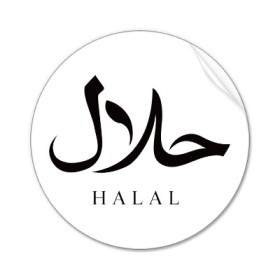 3: How are the animals to be slaughtered by Muslims?
3: How are the animals to be slaughtered by Muslims?

 Question - My Muslim friend says I put a ‘curse’ on him and he no longer wants to be around me. I talked to him, and he said I did this to him. I wonder if Islam teaches superstitions and such things?
Question - My Muslim friend says I put a ‘curse’ on him and he no longer wants to be around me. I talked to him, and he said I did this to him. I wonder if Islam teaches superstitions and such things?
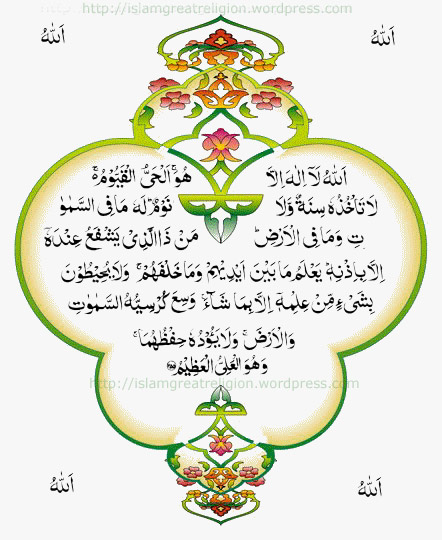
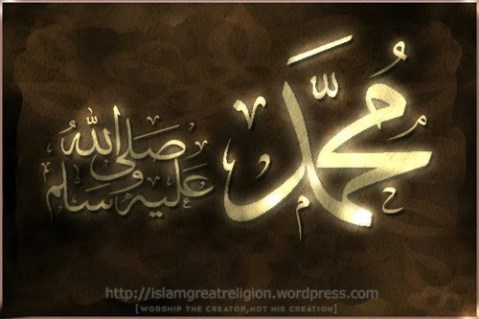



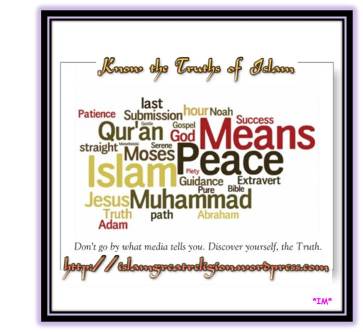
 The Divorced Woman
The Divorced Woman

